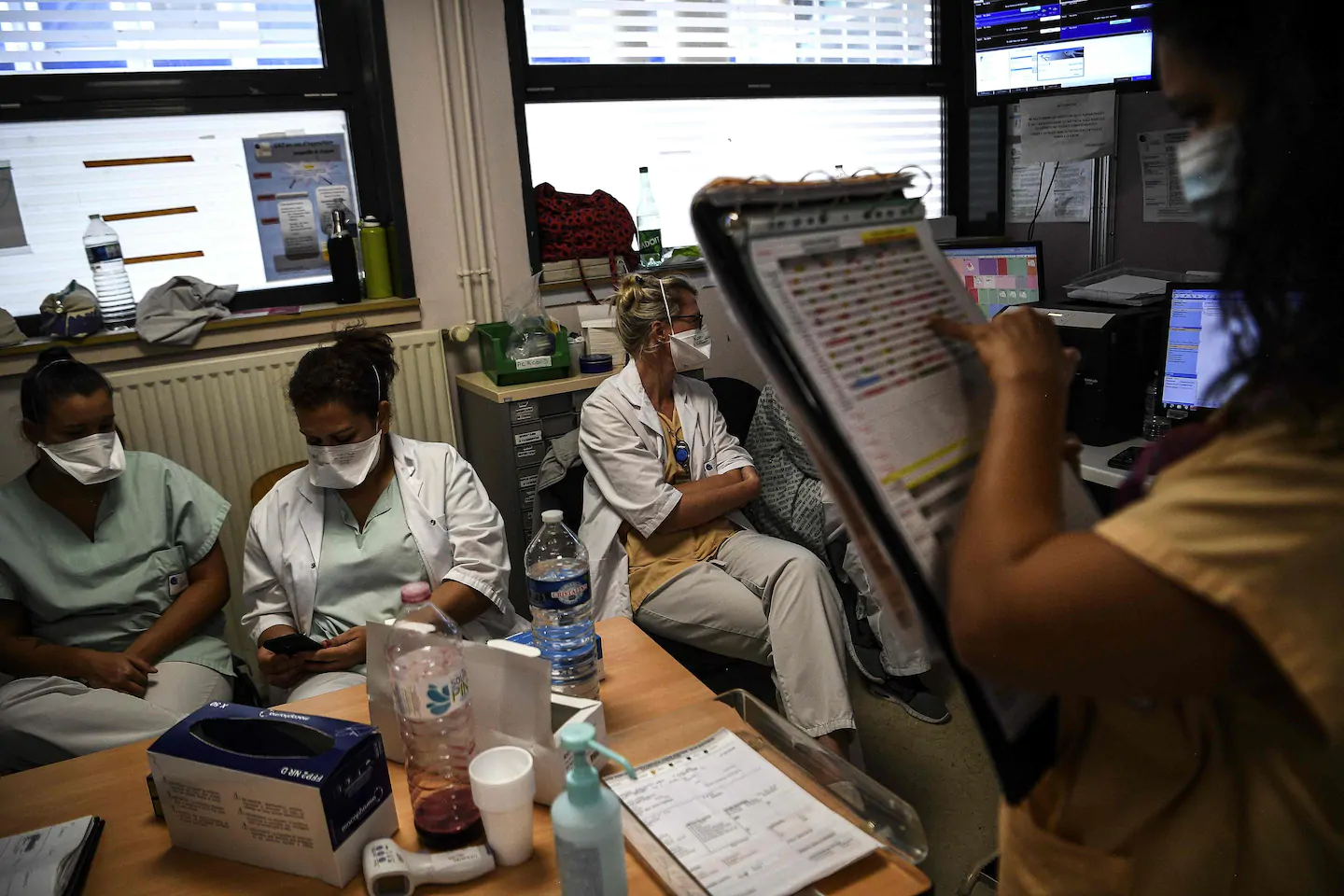The World Health Organization is seeing “exponential increases” in daily cases in Europe, said Hans Kluge, the agency’s director for the continent, noting that at 8,000 deaths a day, covid-19 is now Europe’s fifth-leading cause of death. In just the past 10 days, a million new cases in Europe have been recorded, raising the total since the start of the pandemic to 7 million in the WHO’s 53 European member countries.
He said that by January, daily deaths could be “four to five times higher than what we recorded in April.”
The alarm echoed warnings from London to Latvia that the virus is rapidly spiraling out of control. Germany, Italy, Poland, the Netherlands, Croatia, Slovakia and the Czech Republic all posted records on Thursday. Britain would have as well, if not for an earlier glitch in its case counts.
Europe clamped down hard on the pandemic this spring, and the payoff was a summer that was more normal than many people had expected. Cases remained low, even as many countries reopened their economies. Some Europeans ventured on vacation.
But by the end of August, infections were again on the rise, with more cases concentrated among younger people — who perhaps considered the virus a more remote threat. Now it is spreading to their parents and grandparents, and medical systems are beginning to feel the strain.
French Prime Minister Jean Castex spoke on Thursday of a “sudden and spectacular acceleration” of the pandemic.
“The most worrying thing is that the number of cases is rising very quickly among the elderly, which will quickly result in many new patients arriving in hospitals,” Castex told reporters.
In the Czech Republic, the army is scrambling to build a field hospital in Prague, amid warnings that the country’s medical capacity could be completely subsumed by covid-19 within weeks.
Czech leaders were praised in March for swift measures to shut down their society far earlier than many of their wealthier neighbors, and they were the envy of Europe for months. But after a rapid reopening in May — and perhaps a premature sense of security this summer, when revelers held a celebratory pandemic-vanquishing dinner across Prague’s iconic Charles Bridge — cases and deaths are now through the roof. Nearly half of the country’s 77,000 cases have been registered in the last two weeks, with a record 9,544 on Wednesday alone, the Czech Health Ministry said Thursday.
In absolute terms, reported cases in Europe surpassed the United States last month and cases within the 27-member European Union were higher than U.S. cases by last week. But Europe is larger than the United States and only now has more cases relative to its population.
The prevalence of the virus was evident on Thursday in Brussels, where E.U. country leaders gathered for an in-person summit, despite Belgium having one of the worst outbreaks in Europe. The day’s meetings were just getting underway when European Commission President Ursula von der Leyen had to rush out. A member of her front office had tested positive for the virus, forcing von der Leyen into quarantine.
The World Health Organization accompanied its dire warning about death rates in Europe with the advice that individual actions now could avert more painful government measures later. Kluge said that about 60 percent of Europeans are wearing masks, but if that number increased to 95 percent, and if everyone obeyed limits on social gatherings, people could avert the worst blow of the pandemic.
“It is up for us to accept them while they are still relatively easy to follow, instead of resuming the path of severity,” he said.
Although Europe’s earlier embrace of lockdowns was held up as a global model for how to rein in the virus, there is little appetite for a repeat of that strategy.
“We cannot afford, economically, to have a second wave with the same consequences that occurred in the spring,” said German Chancellor Angela Merkel, whose country on Thursday posted a record 6,638 new infections. “That means we have to do everything we can to keep the infection numbers under control and to trace the contacts.”
She spoke after a grinding Wednesday meeting with the leaders of Germany’s federal states, who have significant power to shape the virus response. German media reported that Merkel unsuccessfully pushed for a stricter approach than many pandemic-weary state leaders were willing to grant her.
Across Europe, leaders have dismissed talk of national lockdowns and instead announced new restrictions targeting hotspot communities. There is a widespread aversion to closing schools but more willingness to limit the operations of bars and restaurants and restrict the size of gatherings. In the Netherlands, public gatherings of more than four people have been banned, as have evening alcohol sales. France is instituting a 9 p.m. curfew in Paris and other major cities. Londoners will be barred from socializing with each other indoors.
“Things will get worse before they get better,” British Health Secretary Matt Hancock told Parliament on Thursday. New reported cases in Britain reached 19,724 on Wednesday, an increase of nearly 2,500 or 14 percent over the previous day’s figure.
“But I know that there are brighter skies and calmer seas ahead — that the ingenuity of science will find a way through and until then we must come together.”
Italy, which was hit first and hard in Europe by the first wave, kept cases low until recently after many Italians were confined to their apartments for months. But it is seeing explosive growth after a long period of quiet, and on Thursday reported 8,804 cases, its highest daily number during the pandemic — though with far more testing than in the spring.
A well-known virologist, Andrea Crisanti, warned in a television interview that a national lockdown could be in play by Christmas, and Prime Minister Giuseppe Conte pointedly did not rule out such a scenario when asked.
Italy has imposed a series of measures in an attempt to slow the spread, last week mandating mask-wearing outdoors and this week curbing hours for restaurants and bars. But officials warn more severe restrictions will still be necessary.
Some regions “are on the verge of a very dangerous path,” said Walter Ricciardi, the World Health Organization’s Italian government adviser, including Milan and Naples, citing the need for “very, very aggressive steps.”
“They should be closing everything apart from schools and work,” he said.
Loveday Morris and Luisa Beck in Berlin, Chico Harlan in Rome, William Booth in London and James McAuley in Paris contributed to this report.


















Pick up these ‘next generation’ technology stocks while they’re on sale